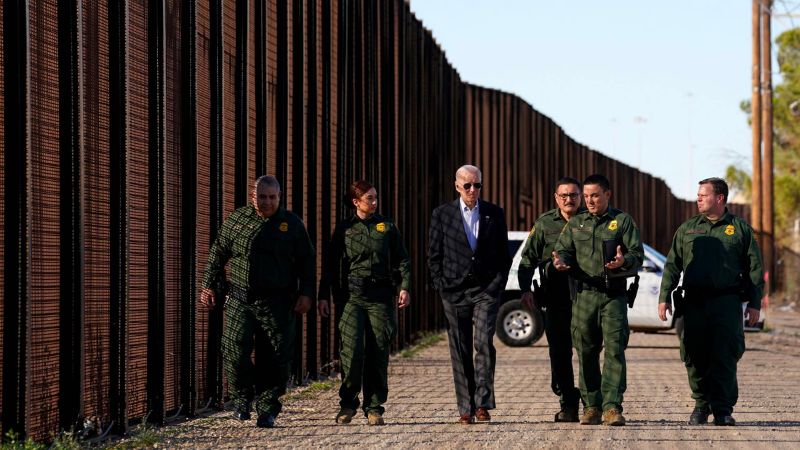
The New Year resets the clock for the Biden Administration to use the next two years to restore and expand our country’s asylum system and welcome children and families seeking safety here with humanity and dignity. Instead, it’s a new year, but the same old immigration policies.
President Biden announced new “border enforcement actions” last week and went to the border this weekend to put a fine point on them. While some of the recommended policies offer positive change, the good policy announcements wither under the weight of deterrence-based measures that would continue denying thousands of asylum-seeking children, families, and individuals fairness, due process, and ultimately the security and well-being that comes from access to safe haven in the United States.
The Administration has announced that it will require families and individuals from Cuba, Haiti, Nicaragua, and Venezuela to apply for a limited humanitarian parole program. Under this program, applicants require a sponsor in the United States, a background check, an unexpired passport, COVID vaccination, and the financial resources to fly here — all for temporary permission to enter the country. Meanwhile, those in imminent danger of persecution and violence who don’t meet those criteria would be unable to flee or would be stopped at the border. While positive on their face as new pathways into the country that are safer than traveling over land to the United States, these limited programs effectively expand the reach of Title 42, the public health law that two consecutive administrations have misused to control immigration. President Biden has also announced he will expand expedited removal, reinstate a policy similar to the Trump Administration’s asylum transit ban, and could begin turning away anyone who does not have an appointment to seek asylum.
Many of the children and families coming to the United States have experienced persecution, torture, trafficking, and abuse in their home countries. For them, coming to the U.S. border is not a frivolous perk. It’s a lifeline. U.S. law mandates that these children and families, no matter how or where they approach the border, have a legal right to seek haven in this country.
It’s great to create more pathways into the U.S., but not at the expense of our nation’s long-standing tradition of welcoming people fleeing danger. Asylum is a legal, orderly pathway. What leads to chaos is U.S. policy focused on denying people that legal, orderly pathway. If our country had a functioning asylum system that centered the needs of children and marginalized people, all people seeking haven would be able to approach our border, be humanely welcomed and processed, get support for basic needs and basic information about the immigration system from nonprofit organizations, and arrive at their final destination with services and legal support to make their immigration claim. But the United States does not have a functioning asylum system — and children and families fleeing for their lives pay the price.
For nearly three years, expulsions under Title 42 have turned people seeking safety, including children with families, away from our border, forcing them to wait, cross at dangerous points, or send children ahead alone to find safety. Before the pandemic and Title 42 expulsions, administration after administration ensured deplorable conditions at the border, detention, and denials of due process to deter asylum-seeking children, families, and individuals. None of it has worked. As long as there is violence, torture, exploitation, and persecution in people’s home communities, they will continue to seek safety at our border. It is predictable. It is also manageable if our policymakers have the courage to measure success not by the number of children and families we reject, but by the number of children and families we protect.
As the President completes his post-border visit trip to Mexico, we hope that what he saw and heard informs reconsideration of his immigration policies from the perspective of children, families, and individuals who fled violence, survived perilous journeys, and simply want a fair chance to make their case for protection in the United States. True understanding of their pain and resilience demands a response based on preserving their safety and dignity. It demands a welcome reception at the border, where basic needs are met. It demands wholistic, community-based care for children and families and time to begin to heal before being forced to recount the experiences that led to their journey. It demands guaranteed access to legal representation and non-adversarial interviews led by compassionate and trauma-informed experts so that asylum-seekers have a full and fair opportunity to seek safety. It demands that we put children and their interests at the center of all our policies, believing that when we protect children, we protect everyone.